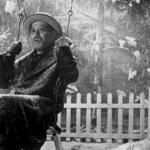
My review of The Love Guru is now up at CT Movies.
One point I considered making in the review but didn’t, quite, is that, for all the raunchy humour on display, the film isn’t really as sexual as you might expect. This is not, in other words, The Guru of Sex, which was the original working title of the film starring Jimi Mistry, Heather Graham and Marisa Tomei that was eventually released simply as The Guru (2002). Instead of perpetuating the stereotype of the sensual South Asian, the “love guru” of Mike Myers’ film really does seem to be concerned with getting people to love themselves and each other, and not just to have sex with each other.
Indeed, the film’s obsession with penis jokes and the like is, in a strange way, almost pre-sexual. This becomes especially obvious if you compare and contrast this film with Adam Sandler’s You Don’t Mess with the Zohan, a film that I mention in my review of The Love Guru but for other reasons.
Both films share an obsession with male genitalia that tests the limits of what is acceptable in a PG-13 film — but for Sandler, it’s all about having sex with the ladies, whereas for Myers and his character, Guru Pitka, it’s all about teasing the guys for being “ball-gazers” and holding up penis-shaped food items and other gags that a prepubescent boy would still find naughty and funny even if he didn’t have a clue what sex was, only that adults find such topics embarrassing. Even the rooster jokes surrounding Jacques “Le Coq” Grande, the well-endowed Justin Timberlake character who has stolen a rival hockey player’s wife away, are played more for the naughty play on words than for any particularly sexual angle.
These may be differences that make no difference, especially to the family-minded readership of CT Movies. And that’s fine, I don’t mean to imply that one kind of dirty joke is necessarily better or worse than another.
But consider this: This may be the first movie Jessica Alba has made in a while in which she is not treated as a piece of eye candy who disrobes for the amusement and/or titillation of the male viewer — something that she has done in comedies like Good Luck Chuck (2007), dramas like Awake (2007), family-oriented (!) comic-book movies like Fantastic Four (2005-2007), and so on, and so on.
Turning to other matters: You can’t cover every angle in a review, but there is a particular line of critique in David Germain‘s review that is spot-on, and which I wish had occurred to me, too, in the few hours that I had to work on this review:
In “The Love Guru,” Mike Myers must come to love himself before he can love others. From the credits of this scattershot comedy sketch stretched and strained to movie length, Myers clearly loved himself to the point of narcissism going in.
Ouch. But true. Germain goes on to cite, among other things, the fact that Myers is listed four times in the acting credits — three times for playing the same character at different ages, and once for playing himself in a two-second cameo. I had noticed the odd detail of Myers being credited three times for the same character, but I hadn’t thought to tie it into the bigger question of narcissism — or, indeed, to tie the guru’s “you must love yourself” message to the bigger question of narcissism, especially the sort of narcissism that is all too common in the Hollywood celebrity culture that Guru Pitka thrives in.
Meanwhile, just to stay on top of some of the coverage that this film has had in the last few weeks: The Hollywood Reporter noted last month that Hindu groups were hoping to get this film banned in India because it “appears to be lampooning Hinduism”, but a couple weeks later, the Associated Press noted that Deepak Chopra, who has a cameo in the film, defended both the film and Mike Myers, saying that the latter has “the most profound understanding of Eastern wisdom, traditions and spirituality.” Whoa, Deepak, let’s not over-reach here. I mean, okay, maybe he does, but is there any evidence of that in the film?
Finally, the Globe and Mail, a newspaper based in Myers’ beloved Toronto, has a story on the influence of Bollywood movies, transmitted via late-night broadcasts on Toronto TV stations, on Myers’ sense of humour, as well as another story on how even some Canadian Hindus are offended by certain aspects of the film.












